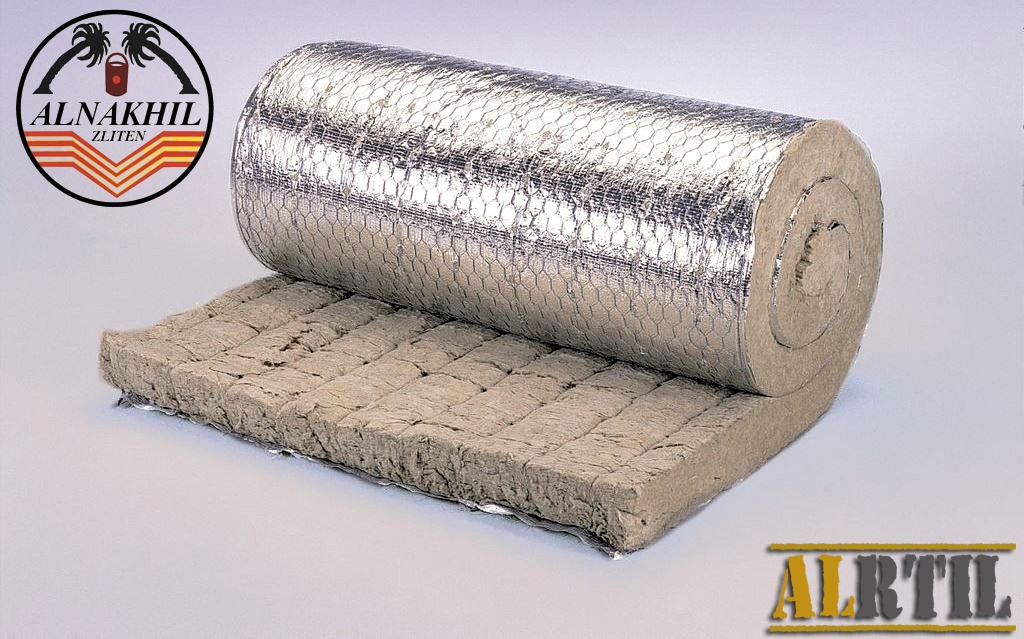HOME | Glass wool

Glass wool is a heat insulating material made from glass fibers sintered on a face similar to that
of wool. Glass wool is produced in the form of rolled sheets or strips with different thermal and
mechanical insulation properties.
Glass wool is a material produced by melting glass and then converting it into fibers with a
diameter of no more than 10 microns in a centrifugal method. The semi-rigid sheets are formed
by adding binders to the fiberglass wool. These panels may contain protective covers (from
reflective aluminum foil or polyethylene foil. or flameproof cardboard) and glass wool is
available in several forms used for thermal insulation, such as: loose fibers, stitched mats, felt,
rigid sheets.
Thermal conductivity : between 0.043 and 0.078 (watts/meter) at temperatures from 50 to 200 ° C.
Density : for semi-rigid slabs not less than 72 (kg / m3). Felts less than 32 (kg / m3) –
for loose fibers under a load of 1.,. (Kg / cm2) of 130 (kg / m3)
Moisture absorption: The percentage of moisture absorption is not more than 5% by weight of
covers and felt.
Fire resistance: Glass wool is non-flammable, and when the temperature reaches 400 ° C, the
organic binders are burned.
Compression strength: The minimum compressive strength of the slabs is 1.4 kg / cm2 at 10%
marbling (0.14 N/mm2).
Glass wool is not combustible and does not produce harmful gases, but the fiberglass wool,
which is usually in the form of fine needles, is very harmful to the skin when handled and may
cause severe skin irritations :
- Wear of face and eye coverings and nose masks.
- Wear of protective skin gloves and clothing.
- Wear of protective skin gloves and clothing.
- The loose fibers should not be dispersed when used by the wind or the air pumping machines
used on the site.
There are a number of benefits to fixing glass wool, including:
- Easy to install and lightweight.
- Reduces energy consumption.
- Reduces noise pollution.
- It improves potency and ergonomic.
- • This insulation material is one of the cheapest materials available these days, so it is
used for home and office ceilings. - 70% of the material is made from recycled glass, so it is considered environmentally
friendly. - It can be installed easily if the ceilings are open.
- Resistant to fire and insects.
PHONE
++(218)912145019
++(218)922145019
Email Address
info@anakhil.com
Address
ZLITEN – Near Al’iithad Cement Factory
Modern products
Bitumode Delta -P
Erock products
Rock wool
Glass wool
Contact times with us ..
Days : Saturday – Thursday
Time : 7:00 AM – 7:00 PM
